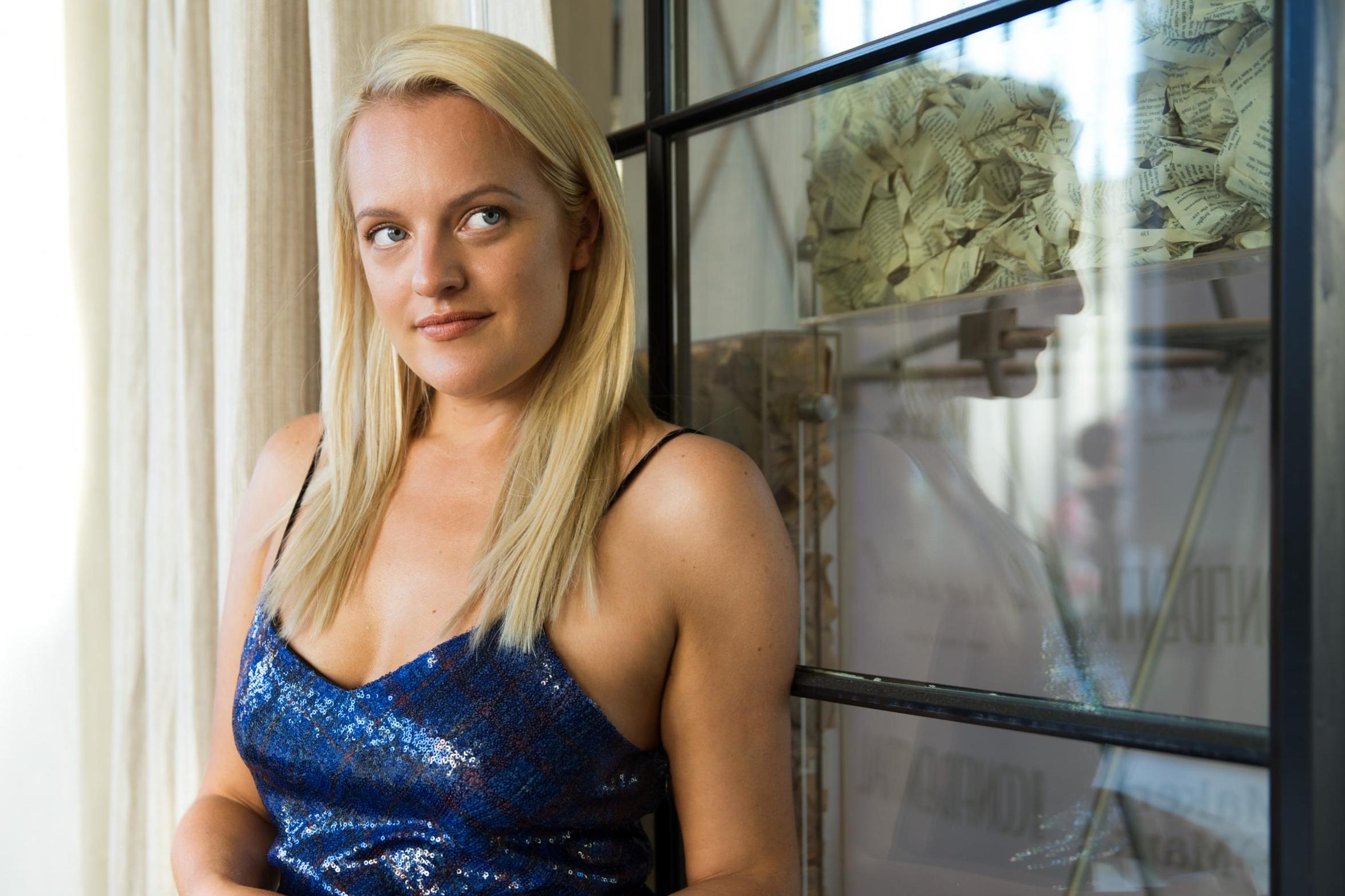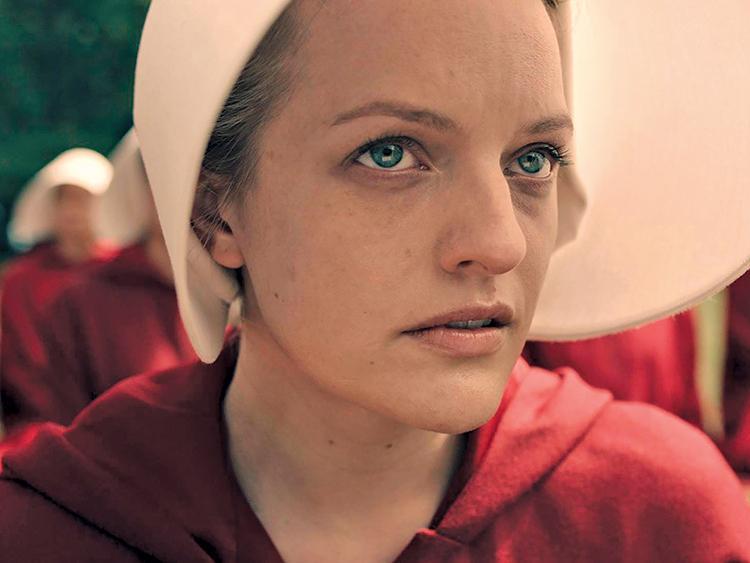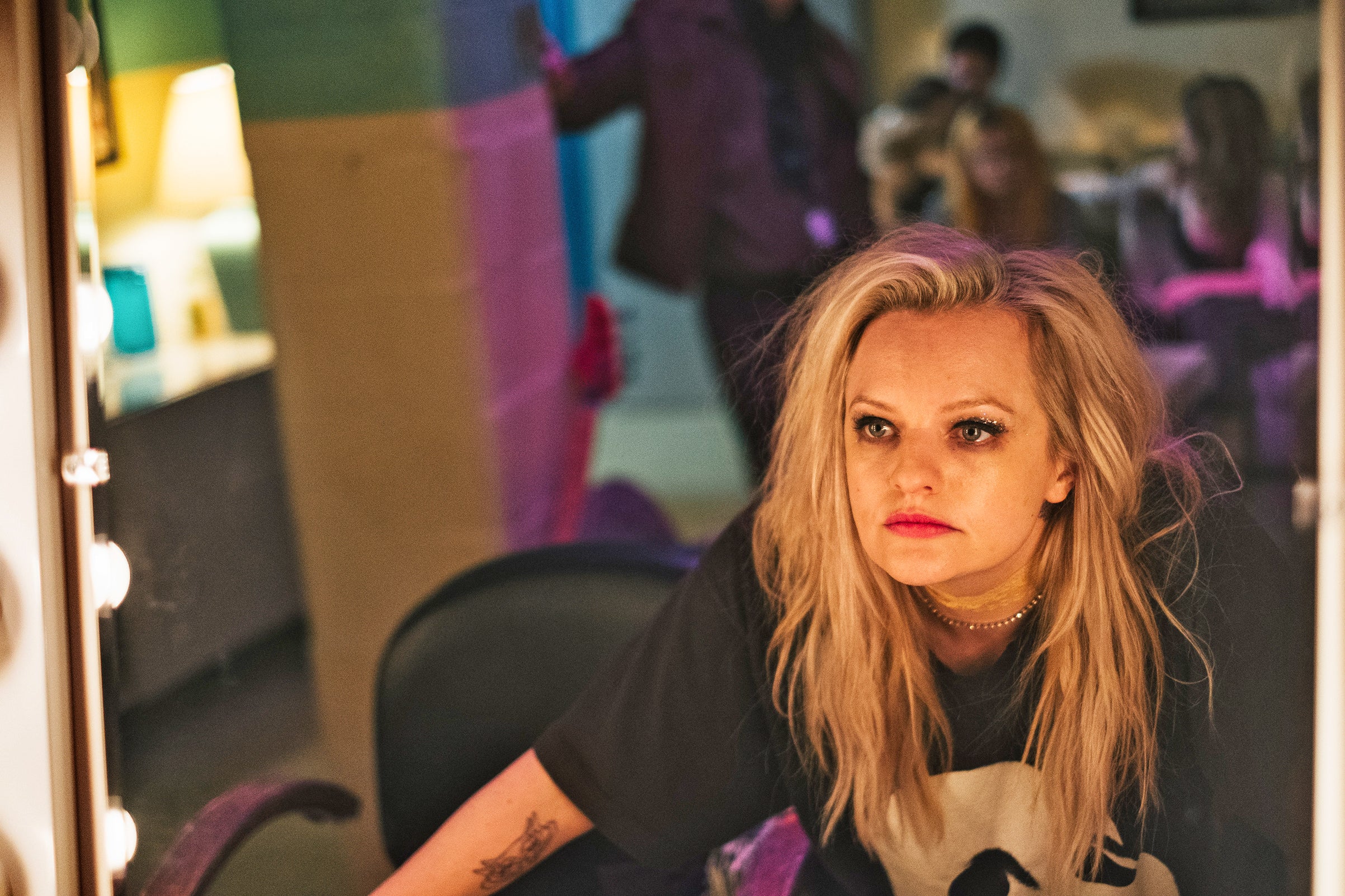Elisabeth Moss interview: 'I wish The Handmaid's Tale was fantasy. I wish it was Game of Thrones'
The actor sits down with Timothy Bella to discuss her role as a self-destructive frontwoman in ‘Her Smell’, Scientology, and the cost of fame

Your support helps us to tell the story
From reproductive rights to climate change to Big Tech, The Independent is on the ground when the story is developing. Whether it's investigating the financials of Elon Musk's pro-Trump PAC or producing our latest documentary, 'The A Word', which shines a light on the American women fighting for reproductive rights, we know how important it is to parse out the facts from the messaging.
At such a critical moment in US history, we need reporters on the ground. Your donation allows us to keep sending journalists to speak to both sides of the story.
The Independent is trusted by Americans across the entire political spectrum. And unlike many other quality news outlets, we choose not to lock Americans out of our reporting and analysis with paywalls. We believe quality journalism should be available to everyone, paid for by those who can afford it.
Your support makes all the difference.Elisabeth Moss wants to go to an honest place. If you can’t watch what we’re making, she says, how can you look out and confront what’s happening around you in our country and in this world?
Sitting near a hotel bar to promote the US release of her indie film Her Smell, the conversation casually turns to Martin Luther King. As she tells it, Moss was shooting a scene at the Lincoln Memorial for the third season of The Handmaid’s Tale when she looked down at her feet and saw the engraved space honouring King’s landmark “I Have a Dream” address. Then, in her red handmaid’s cloak, she knelt down on the marker.
Moss, who has forged June “Offred” Osborne – and Peggy Olson before her – into some of television’s most notable yet unplanned feminist icons of the last dozen years, didn’t shy away from recognising the link between the show and some of the political and social issues unfolding in the country. She even calls it cathartic.
“I don’t know how many people have this experience of being in that costume on those steps,” she says, “with the president a few blocks away making massive decisions that will affect immigration and the freedom and rights of many citizens”.
If the red cloak is now the international protest symbol for women’s issues, whether it’s in support for reproductive rights abroad or against a Supreme Court nominee in the United States, then Moss, or her character, is the face of that branch of the resistance. As Moss says during the South by Southwest (SXSW) festival in Austin, Texas, she hopes Gilead is “a long walk” from President Trump’s America, but that doesn’t change the present reality. It’s a role she admittedly wishes she didn’t have to take on, but says she remains honoured for the responsibility in the “really unusual circumstance”.

“How would that feel for you?” she says, calling the situation “nuts”. “The fact that it’s entered the culture the way it has is incredibly unusual. I wish it was fantasy. I wish it was Game of Thrones, you know? I wish it was like, ‘This is crazy!’
“But unfortunately, it’s not.”
It’s noon on a sunny Saturday in early March, and the $16 (£12) cocktails are already flowing in the flora-scented hotel flooded with hipsters and people-watchers in town for the famed festival, hoping to catch a glimpse of Seth Rogen or Henry Winkler. But no one turns more heads in the influencer-heavy hotel than Moss, the brightest star at the bar, whose long blonde locks tumble over a black Led Zeppelin T-shirt and matching blazer. She’s supporting two films at the festival, a standing-room-only talk with singer-songwriter Brandi Carlile (she stars in the music video for Carlile’s 2018 song “Party of One”) and an overstuffed slate of everything in between.
Moss did not get a lot of sleep the night before, when Jordan Peele’s Us made its world premiere a few blocks away. The same was true later that night for Her Smell, Alex Ross Perry’s addiction-fuelled love letter to the highs and lows of Nineties punk rock, that screened at the festival before hitting US theatres this month.
As she sips on a green smoothie, Moss swears she’s keeping it together during the weary weekend. The 36-year-old actress then wonders if she has smoothie on her face. She doesn’t.

Watch Apple TV+ free for 7 days
New subscribers only. £8.99/mo. after free trial. Plan auto-renews until cancelled

Watch Apple TV+ free for 7 days
New subscribers only. £8.99/mo. after free trial. Plan auto-renews until cancelled
“Don’t worry, I’m holding up fine,” she tells me with a relieved grin. “I’m just leaking green juice.”

If you ask her, Moss will tell you that Her Smell, the actress’s third collaboration with Perry, was the hardest thing she’s ever done. The angst, anger and depression of Nineties grunge put Moss – who grew up with jazz and blues musicians for parents and adored Paula Abdul and whose first concert was Michael Jackson’s Bad tour – squarely out of her element.
“Nirvana wasn’t my thing at all. I just skipped right to Britney Spears,” she says, citing “...Baby One More Time” as her go-to classic. “That was my journey. I mean, how do you get better than that?”
Becky Something, Moss’s character in the fictional biopic, is the toxic, self-destructive frontwoman of the riot grrrl feminist punk movement. She is less Courtney Love and more Kurt Cobain, as well as Amy Winehouse, Marilyn Monroe and James Dean – those who struggled with a life of incredible fame mixed with crippling addiction. You can’t take your eyes off the anxiety and instability of Becky, whose jarring benders, violent outbursts and subsequent sobriety are both gripping and holistically awkward.
“In one sitting, she achieves what she does season upon season on TV – creating a multiyear narrative for her characters,” Perry said in a statement.
No matter how Moss got there, she left Carlile, a fan and collaborator, visibly shook.
“I was, at times, visibly uncomfortable watching it,” Carlile told Moss at their talk in Austin, before going one step further. “I was uncomfortable the whole time.”
From the time she debuted on Mad Men in 2007 until now, heading into her third season on another critically acclaimed show and booking lead roles in feature films at a breakneck pace, the focus on the actress has never been higher. But there’s a price. With the increased spotlight on Moss and her work has come questions from fans, colleagues and critics regarding her beliefs in the Church of Scientology. She declines to expand on those criticisms but says she stands by what she describes as a personal matter.

“What I’ll say is, honestly, I have very little control over what is mine and what is private and what isn’t,” Moss says. “It’s been my choice to keep certain things private, because otherwise it sort of feels that you don’t have anything that’s personal. The truth is what I believe, and what’s important to me is in my work. Often, the things I stand for, the things that mean something to me and my heart, I try to put into my work.”
In that work, Moss’s striking range is on display throughout the weekend. One night, she’s Kitty, the vain, gossip-driven housewife who drowns her insecurities in rosé in Us. The next, she’s hard-living Becky. She says she played four different characters in less than five months last year, casually mentioning how she just returned from working on a Wes Anderson film in France.
“Bill Murray’s in it,” she says coyly about the project, probably referring to next year’s The French Dispatch. “I think I can say that.”
That versatility was apparent to Peele, who wanted Moss to tap into a Real Housewives of Orange County vibe in Us.
“The most wonderful thing about working with Lizzie, from a directing standpoint, is you can experiment,” Peele said in an interview promoting the horror film. “She has such refined tools that you’ll get a performance and a take of something that is so beautiful, so nuanced, and weird and off-balance, and then you say, ‘Try another one like that but different,’ and she’ll give you the hardest options you can imagine.”
She sees it in simpler terms. “It’s not rocket science to me,” she says. “My job is, in a sense, ridiculous. I put on costumes and hair and makeup and pretend to be other people. Then, there’s a hundred people that are in on the game and also playing with you. It’s ridiculous.”
A weekend of standing ovations concludes with one more inside a dark ballroom at the Austin Convention Centre. Fans hold out their hands and iPhones, clamouring for a chance to meet whoever they want Moss to be in that instance – the copywriter, the handmaid, the punk rocker, the star. This is the fame that follows Moss. The scene is not much different from one of the themes in Her Smell – the cost of fame and the sacrifices that come with it.
Back at the hotel, she ponders what the cost of fame has been for her. She finally lands on time, the greatest natural resource, and prioritising it to make sure that it never becomes a cost.
“My family is very important, my friends are important, my boyfriend is important to me,” she says.
Then, Moss returns to an honest place.
“Those are the people I actually want to hang out with.”
She catches herself: “No offence, but you get it.”
None taken.
© The Washington Post
Join our commenting forum
Join thought-provoking conversations, follow other Independent readers and see their replies
Comments